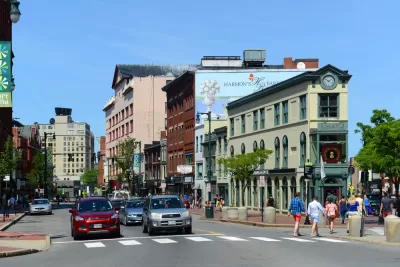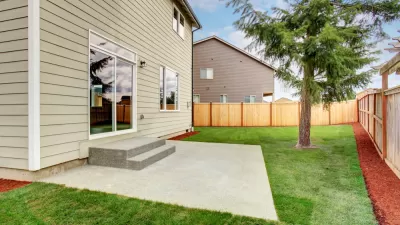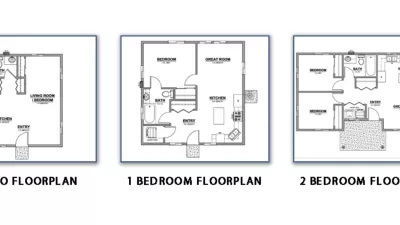Maine could become the third state to eliminate single-family-only zoning to encourage light density increases in residential areas and make it easier for homeowners to build accessory dwelling units.

The Maine state legislature is one step closer to passing a bill legalizing duplexes, accessory dwelling units, and other “missing middle housing” types in neighborhoods previously zoned for single-family homes. As Christian Britschgi writes, the state is following the example of California and Oregon, which have both eliminated single-family only zoning and, in the case of California, established housing production goals.
“The measure has attracted bipartisan support, reflecting a growing consensus that local governments' zoning regulations are making housing unaffordable and that state preemption of those regulations is one means of bringing housing costs down and returning rights to property owners,” Britschgi says.
Maine's legislation would require municipalities to allow two-unit homes everywhere that single-family homes are allowed today, and to allow four-unit homes in designated growth areas. The bill would also guarantee homeowners the right to build accessory dwelling units (ADUs)—sometimes known as granny flats or in-law suites—on their single-family properties.
The bill would allow localities to limit ADU size, but ban them from requiring additional on-site parking. “The bill also eases density restrictions and parking requirements for deed-restricted affordable housing in multifamily-zoned areas. Provided they offer units for rent or sale at specific below-market rates, these developments can be built at 2.5 times the density of whatever the multifamily zone already allows.”
Critics of the bill say taking control away from local leaders could lead to overdevelopment and strained infrastructure and local services. Some also point out the nebulous and shifting definition of “affirmatively furthering fair housing.”
Others question whether the legislation would have any impact at all—California’s early experience does not exactly inspire confidence, although the state is taking steps to make ADU construction cheaper and more feasible for more property owners. According to Britschgi, allowing localities to set rules for ADUs “opens the door to localities setting up lengthy, discretionary approval processes that discourage people from actually building them.”
FULL STORY: Maine Could Be the Third State To End Single-Family-Only Zoning

Planetizen Federal Action Tracker
A weekly monitor of how Trump’s orders and actions are impacting planners and planning in America.

Map: Where Senate Republicans Want to Sell Your Public Lands
For public land advocates, the Senate Republicans’ proposal to sell millions of acres of public land in the West is “the biggest fight of their careers.”

Restaurant Patios Were a Pandemic Win — Why Were They so Hard to Keep?
Social distancing requirements and changes in travel patterns prompted cities to pilot new uses for street and sidewalk space. Then it got complicated.

Platform Pilsner: Vancouver Transit Agency Releases... a Beer?
TransLink will receive a portion of every sale of the four-pack.

Toronto Weighs Cheaper Transit, Parking Hikes for Major Events
Special event rates would take effect during large festivals, sports games and concerts to ‘discourage driving, manage congestion and free up space for transit.”

Berlin to Consider Car-Free Zone Larger Than Manhattan
The area bound by the 22-mile Ringbahn would still allow 12 uses of a private automobile per year per person, and several other exemptions.
Urban Design for Planners 1: Software Tools
This six-course series explores essential urban design concepts using open source software and equips planners with the tools they need to participate fully in the urban design process.
Planning for Universal Design
Learn the tools for implementing Universal Design in planning regulations.
Heyer Gruel & Associates PA
JM Goldson LLC
Custer County Colorado
City of Camden Redevelopment Agency
City of Astoria
Transportation Research & Education Center (TREC) at Portland State University
Camden Redevelopment Agency
City of Claremont
Municipality of Princeton (NJ)





























